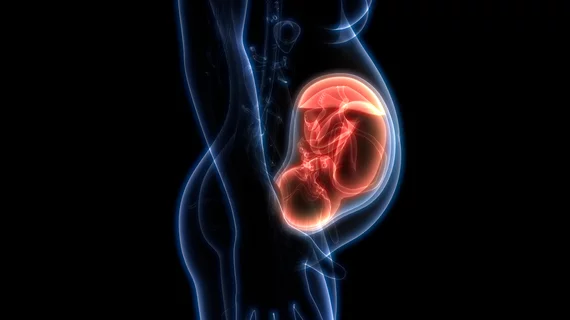fMRI reveals prenatal opioid exposure changes brain connectivity in babies
Infants exposed to opioids while in utero exhibited altered connectivity in brain regions central to emotion, according to a study being presented at next week’s Radiological Society of North America meeting.
Researchers from Indiana University School of Medicine found prenatal opioid exposure specifically impacted the amygdala, noting their findings may help determine if such exposure has long-term consequences on brain development and behavior.
"Many studies have looked at the impact of long-term opioid use on the adult and adolescent brain, but it is not clear whether social and environmental factors may have influenced those outcomes,” Rupa Radhakrishnan, MD, with Indiana’s school of medicine, said in a statement. “By studying infants' brain activity soon after birth, we are in a better position to understand the effect of opioids on the developing brain, and explain how this exposure could influence long-term outcomes in the context of other social and environmental factors."
Opioid use can have dire consequences for the mother, fetus and infant. Babies exposed to such drug use suffer from withdrawal when they are born, also called neonatal abstinence syndrome (NAS). The condition requires lengthy hospital stays to monitor progression, with severe situations requiring opioid treatment.
The researchers used fMRI to measure the brain activity of 16 infants (half exposed to opioids in utero) and employed anatomical MRI to create brain maps depicting amygdala connectivity.
Upon analysis, the team found “significant” differences in how the amygdala connected to other brain regions in babies exposed to opioids compared to those who had not.
The results, according to the authors, will need to be confirmed in larger and longer-term studies, which are already underway, and may offer insight into how such brain changes impact the long-term development of babies suffering from NAS.
"Although our early results showed differences between the two groups in a small study sample, it is very important that we further investigate and validate these findings in larger studies," Radhakrishnan said. "In order to identify the best methods for managing NAS and improving long-term outcomes in these infants, it is critical to understand changes in brain function that may result from exposure to opioids prenatally."

